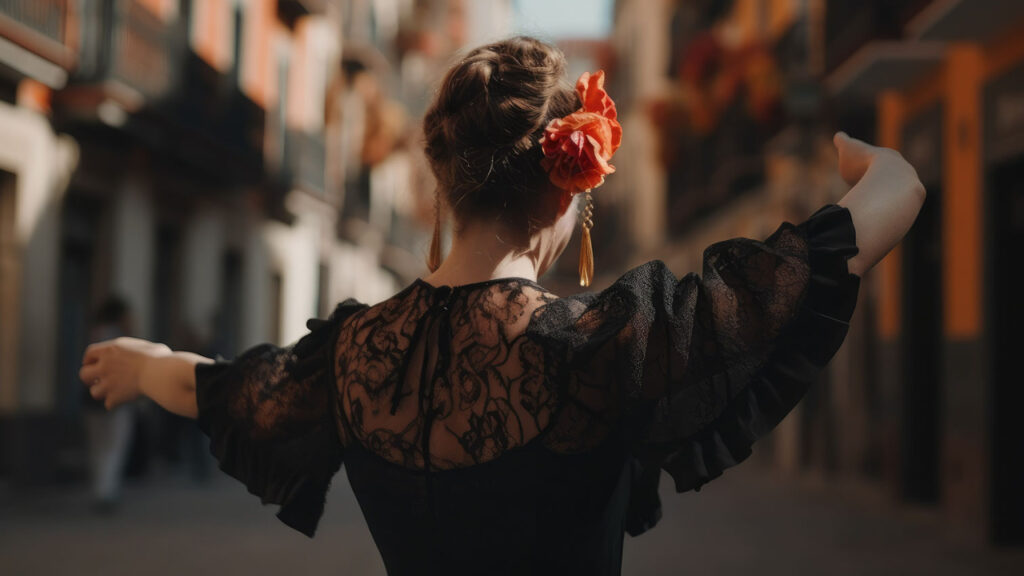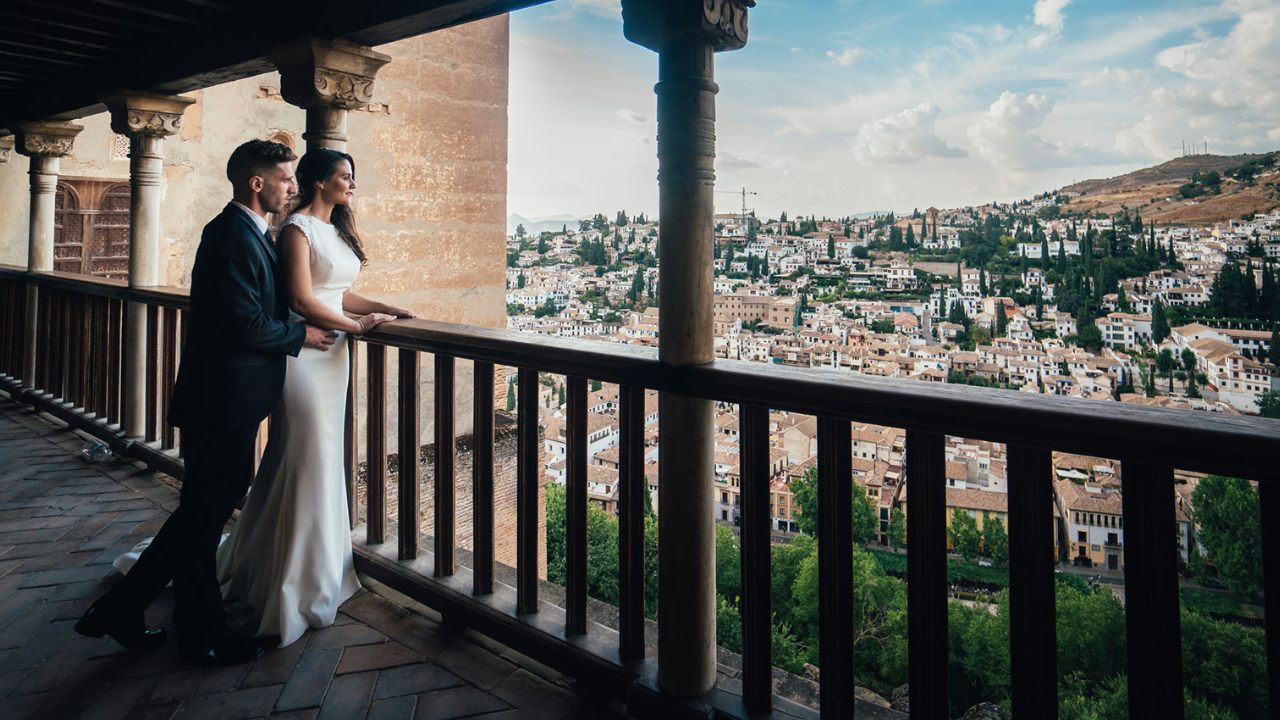Spain, with its sun-kissed beaches, historical towns, and spirited culture, is an ideal backdrop for any couple’s dream destination wedding. We thought about it for our own. Indeed, with its rich traditions, Spain offers an exotic blend of romance and passion, making it an impeccable choice for tying the knot. But if you’re considering saying ‘I do’ in this captivating country, there’s more to know than just finding the perfect location. Dive into the marriage laws, customs, and traditions of Spain to make your big day truly unforgettable.
▶️ Read also: Tips to save on your European wedding
Understanding Spain’s marriage laws in depth
For couples who dream of tying the knot amidst Spain’s romantic vistas, understanding the nitty-gritty of its marriage laws is paramount.
Conditions for getting married in Spain
- Residency requirement: While Spain is a favourite among destination wedding enthusiasts, it’s crucial to note the residency condition. At least one of the intending spouses must have lived in Spain for a minimum of two years to be eligible to marry. However, an exception may apply for couples from Catholic countries wishing for a Catholic ceremony in Spain.
- Age restrictions: The legal age for marriage in Spain is 16. However, if either party is aged between 16 and 18, they must present written parental consent.
- Civil vs religious marriages:
- Civil marriage: This form of marriage is open to both residents and foreigners, provided they meet the residency criteria. It’s carried out at the local Civil Registry where at least one of the partners is resident.
- Religious marriages: Most religious marriages in Spain are Catholic. While they are legally recognised, couples often need to undertake a separate civil process. For Protestant, Jewish, or Muslim ceremonies, couples should consult their respective religious institutions in Spain, as additional requirements often apply.
- Documentation:
- Passport or identification card: A valid ID proving nationality and residence.
- Birth certificate: This must be accompanied by a Spanish translation if it’s not originally in Spanish.
- Proof of eligibility to marry: Also known as ‘certificado de capacidad matrimonial’, this certifies that there are no impediments to the marriage.
- Divorce or death certificates: If relevant, from any prior marriage.
- Affidavit: A statement made before a notary, stating the individual’s current marital status and eligibility to marry.
- Registry: Upon gathering the necessary documents, couples need to apply at the ‘Registro Civil’ (Civil Registry) of the district where the marriage will take place. Following the application, there’s an official publication of ‘banns’, publicly announcing the intended marriage. This is a traditional practice that allows anyone with knowledge of significant impediments to the marriage (like existing marital bonds) to come forward.

Getting your Spanish marriage recognised abroad
For those who hail from outside Spain, it’s vital to ensure your Spanish wedding is recognised in your home country:
- Legalisation and Apostille: Once the Spanish marriage certificate is procured, it often needs to be legalised for international use. This process involves getting an Apostille stamp, available from the Spanish Ministry of Justice.
- Translation: If the home country doesn’t have Spanish as an official language, it’s recommended to get the marriage certificate translated by an official translator.
- Consult the Home Country’s Embassy: Each country has its nuances regarding the recognition of foreign marriages. It’s beneficial to approach the embassy or consulate of your home country in Spain beforehand to understand these specifics.
- Submission to the Local Registry: In many countries, the couple needs to present their Spanish marriage certificate (with Apostille and translation, if necessary) to their local registry or similar body to have the marriage recognised.
While the process may appear extensive, marrying in Spain’s romantic backdrop can be worth every effort. A bit of preparation, combined with understanding the legal intricacies, can pave the way for a seamless Spanish wedding experience. Remember to consult with local experts or legal advisors, especially when it comes to international marriage recognition, to ensure no detail is overlooked.
🔗 Useful links
- Marriage – U.S. Embassy & Consulate in Spain and Andorra
- Spain: notarial and documentary services (UK)
- Mariage – Ambassade de France en Espagne
Spanish wedding traditions: Adding the magic touch
Once you’re well-versed with the legalities, it’s time to add the cultural flavours to your destination wedding in Spain. Here are three deeply-rooted Spanish wedding traditions:
- Las Arras: In a significant ritual, the groom gifts the bride 13 gold coins, representing Christ and the 12 apostles. This symbolises the groom’s commitment to care for and support his wife.
- Orange Blossoms: These fragrant flowers symbolise happiness and fulfilment. Many Spanish brides choose to adorn their hair or bouquets with these blooms, symbolising the sweet and blossoming journey ahead.
- The Rumba: Instead of the traditional waltz, Spanish couples often sway to the passionate beats of the Rumba for their first dance. This lively dance encapsulates the soul of Spain and the love between the couple.
▶️ Read also: Eight Spanish traditions to include in your wedding
A destination wedding in Spain promises more than just picturesque locales. By intertwining Spain’s rich traditions and understanding the necessary legalities, couples can experience a truly immersive celebration. Remember, it’s not just about the destination, but the journey and stories you create along the way. So, let Spain’s fervent passion, enchanting customs, and sun-drenched landscapes narrate your love story!






